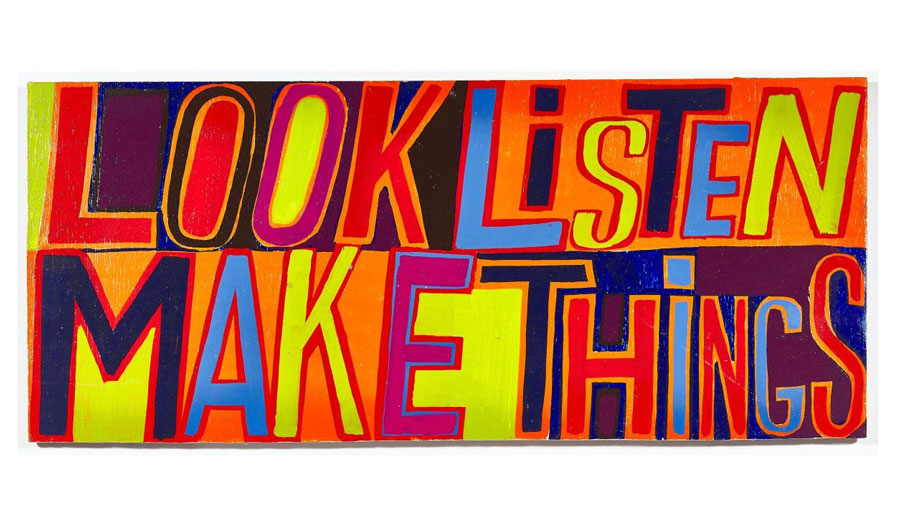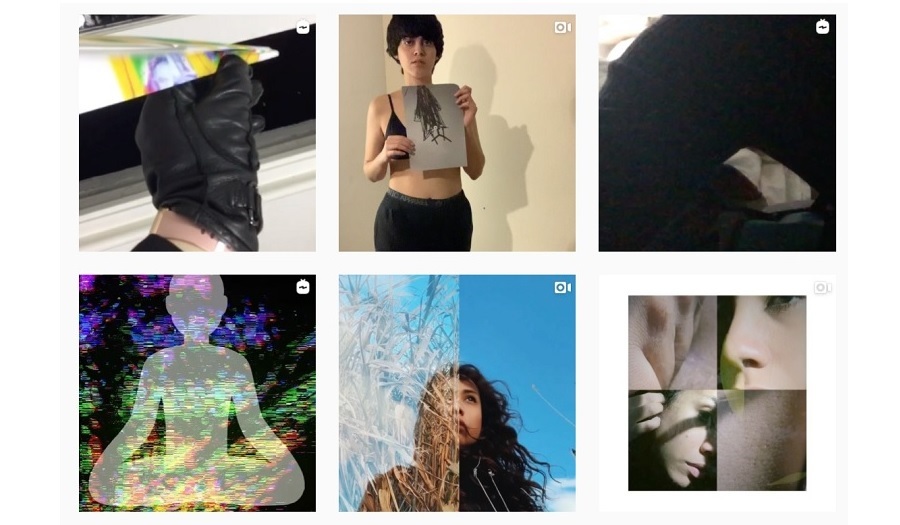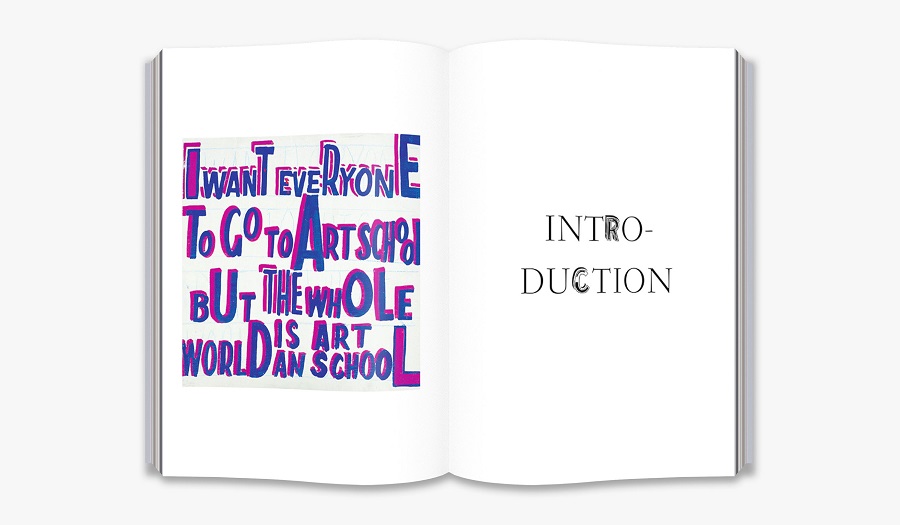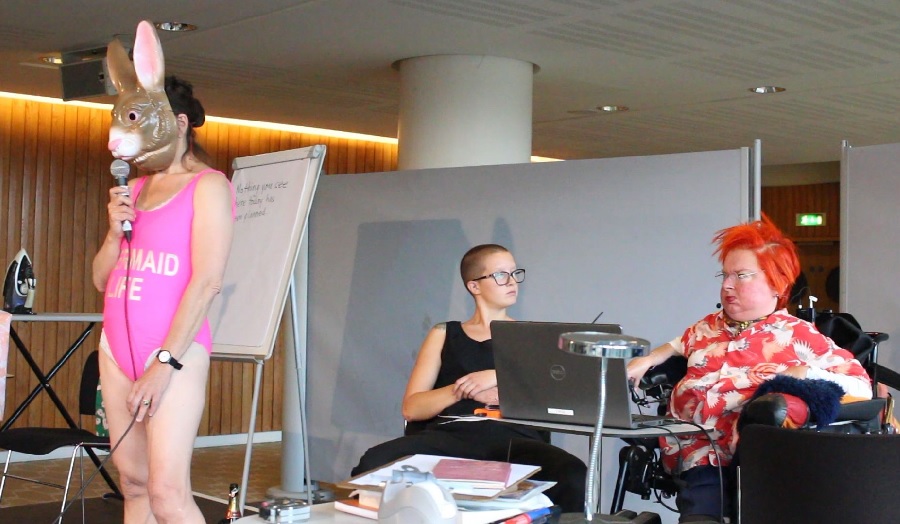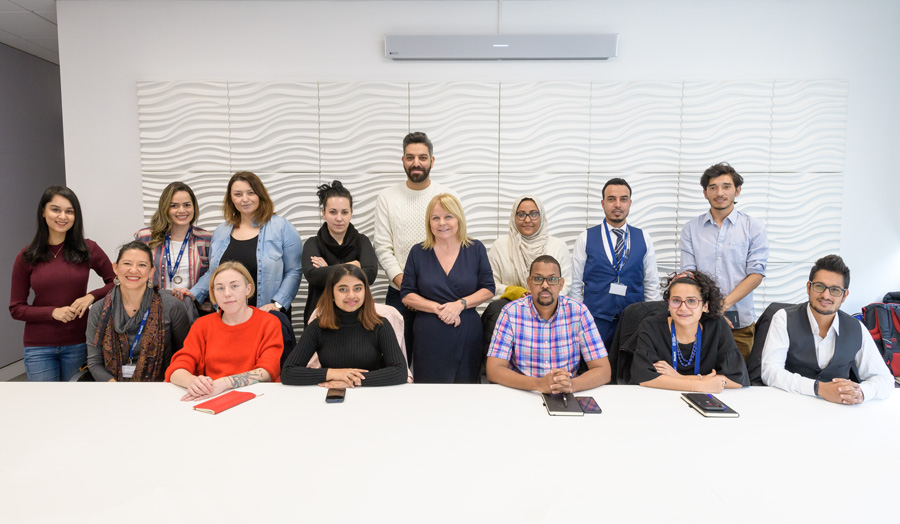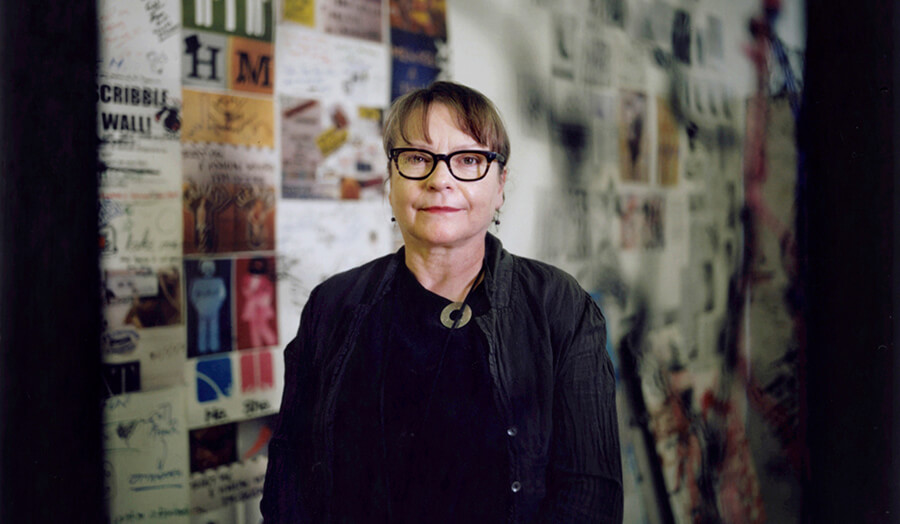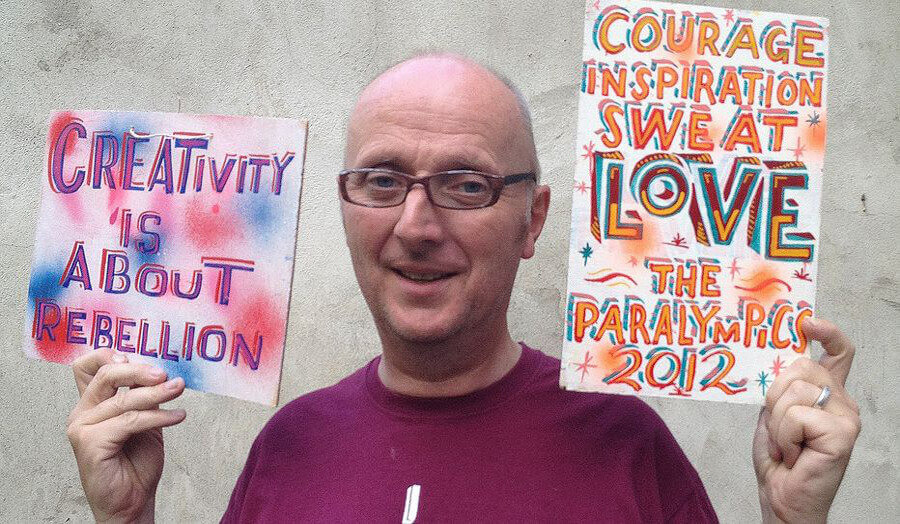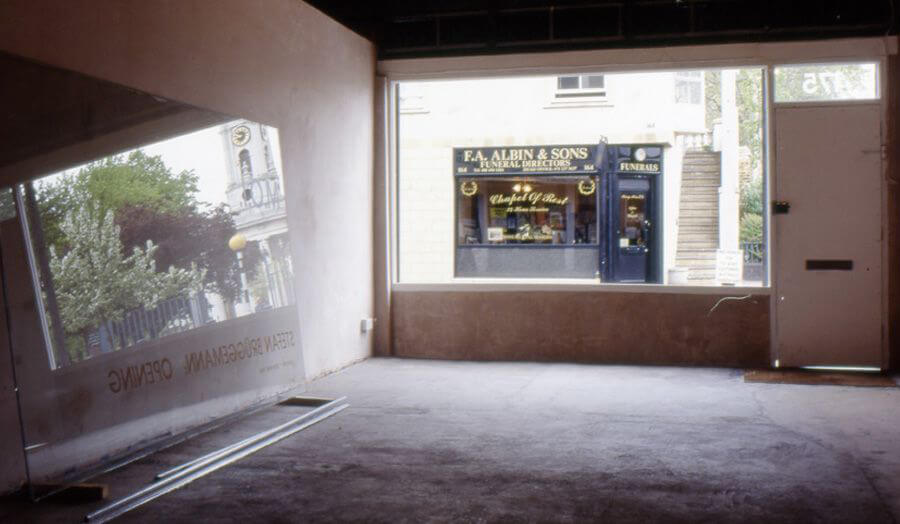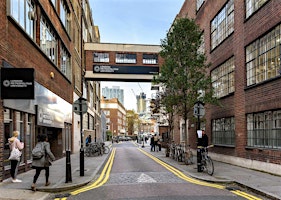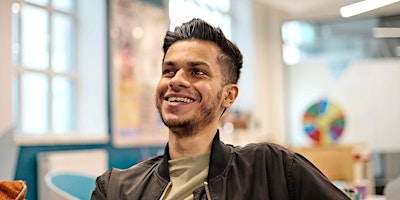Apply for this course
Please select when you would like to start:
Use the apply button to begin your application.
If you require a Student visa and wish to study a postgraduate course on a part-time basis, please read our how to apply information for international students to ensure you have all the details you need about the application process.
Why study this course?
With the global art city of London and its hundreds of galleries on your doorstep, this professional practice Master of Fine Arts course will provide you with access to a wide range of specialist art facilities and equipment. You’ll have the opportunity to pursue professional projects in video art, sculpture, photography, printmaking, ceramics, painting or any other art or design practice.
As well as raising your public profile by creating your own online and social media presence, you’ll have the opportunity to exhibit your work and to work in a group on a final, professionally commissioned brief from an arts organisation or design company. The MFA course is designed to give you the professional skills needed to pursue the vocation you have chosen in art or design and make a living from your practice.
Choose your own speciality
You’ll have the opportunity to pursue professional projects in video art, sculpture, photography, printmaking, ceramics, painting or any other art or design practice
Learn from industry professionals
Throughout the year, you’ll gain insights into the art and design worlds via guest lecturers from a wide range of public and private sector organisations
Exhibit your work
There will be opportunities to exhibit your work at different points throughout the year including our summer show
Course modules
The modules listed below are for the academic year 2024/25 and represent the course modules at this time. Modules and module details (including, but not limited to, location and time) are subject to change over time.
Year modules
Art Project Development
This module currently runs:all year (September start) - Thursday morning
(core, 40 credits)
The focus of the FA7056 Art Project Development module is the development of a personal art practice that establishes the basis for your output in your major art project, which will be developed into a substantial body of work for public presentation (if appropriate).
You will be expected to propose and test out a range of art propositions to identify and develop your art practice. You will explore approaches to work through technical and conceptual explorations, contextualising your art practice in group presentations, seminars and discussions. You will be encouraged to participate in outward-facing art activities, such as exhibitions, talks, workshops and live projects, which will enable you to understand through direct experience some of the complexities of the social and cultural functions related to your field of art study.
You will be encouraged to understand your work in the contexts of contemporary networks with opportunities for a presentation and reception of research and practice outcomes. The development undertaken in this module will make use of the learning achieved in the concurrent (or for part-time students, prior) module FA7053 Critical Discourse & Analysis for Art Practice.
The aims of the FA7056 Art Project Development module are for you to:
• explore and question art conventions and set your own agenda as an artist
• identify your art ambitions in demonstrating the skills and ideas required to propose and complete a significant art project for exhibition
• develop the ability to write a professional art project proposal for exhibition
• acquire the necessary self-reflective skills to tackle the challenges and demands of a contemporary art practice
The overall aim of the module is to support you to acquire or enhance the necessary conceptual, professional and practical skills to develop your art practice towards completion of an ambitious major art project by the end of the course.
Read full detailsCollective Art Practice
This module currently runs:spring semester - Monday afternoon
spring semester - Monday afternoon
(core, 20 credits)
FA7055 Collective Art Practice is a studio practice module offering you another opportunity for making art in studio, still using wider peer group interaction and collaboration towards a specific art goal – but this time an art exhibition around a socially responsible theme devised and agreed by you and all your module cohort peers. As ever, the module provides you with the opportunity to combine agility and adaptability in your own artmaking with a core underlying philosophy of collaboration. You will again draw upon new aspects of your art practice to generate a professional opportunity via the art exhibition. The module contributes to the MFA award it serves by providing the second show in a formal sequence of three art exhibitions over the duration of the course.
The aims of the FA7055 Collective Art Practice module are for you to:
• acquire confidence and resilience in negotiating and agreeing with peers an inclusive and socially responsible theme for a group art project;
• devise in a team a project plan to manage an art exhibition arising from a negotiated group art project proposal;
• develop your ability to argue for a group art proposition to art organisers and other artists;
• foster a team ethic in which all group members participate in project tasks equally and inclusively;
• provide you with the collaborative opportunity to organise a live event.
The overall aim of the module is to establish and embed common studio practice principles around and towards art exhibition and display in a collective, collaborative and socially responsible way led entirely by the student group itself.
Read full detailsCritical Discourse & Analysis for Art Practice
This module currently runs:all year (September start) - Monday morning
(core, 40 credits)
The FA7053 Critical Discourse & Analysis for Art Practice module supports you to identify research questions and methodologies appropriate to your art practice. Through this module’s seminars, lectures and tutorials, you will interrogate and discuss your self-directed art research project. All research for and testing of art practice undertaken during this module is intended as both preparation for and complementary to work on the art project or art studio modules and will explore connections between art research, art thinking and art making with an emphasis on locating critical contexts for study through the practice of art.
The aims of the FA7053 Critical Discourse & Analysis for Art Practice module are for you to:
• develop the necessary postgraduate study and research skills to tackle the intellectual challenges and demands of your postgraduate art project work;
• describe how plurality, diversity and social justice work in the practice of art;
• establish your own independent art research working strategy and articulate the critical context associated with your field of art practice.
The overall aim of the module is to support you to acquire or enhance the necessary conceptual and practical research skills to inform and frame your art practice and to underpin the development of an ambitious major art project by the end of the course.
Read full detailsMajor Art Project
This module currently runs:summer studies - Thursday afternoon
summer studies - Thursday morning
(core, 60 credits)
The FA7P01 Major Art Project module frames the culmination of your output on the MFA Fine Art or the MA Public Art and Performance, enabling you to balance creative and intellectual ambition with the rigours of professional practice and academic research expectations.
The focus of the FA7P01 Major Art Project module is the production of a major body of work that has evolved from a project proposal in the FA7056 Art Project Development module. The FA7P01 Major Art Project module is based upon a concurrent or prior programme of research and contextually informed practice and practice-based enquiry at an advanced level in the FA7053 Critical Discourse & Analysis for Art Practice module.
This module supports the evolution of your subject-specific and professional expertise and develops a sustainable practice for the external fields of art research and art engagement. You will build upon previous projects, processes and explorations and continue to contextualise their work through presentations, tutorials and group critiques.
The outcome of FA7P01 Major Art Project is intended be a significant body of work that will enable you successfully to progress your career.
The module aims to:
• empower you to achieve or exceed your ambitions and to develop and display the creative skills and confidence required to go on to further study of art and/or to professional art practice;
• enable you to complete and so realise in group art exhibition a major art project from a proposal planned and developed earlier in the course
• provide you with the necessary evaluative skills to tackle the challenges and demands of the changing nature of art;
• open up to you a prime opportunity to work responsively and responsibly in a team with other artists, organising an art exhibition open to the public;
• encourage you to engage with other artists in dialogue, idea exchange, art experimentation, heuristic learning and professional practice.
The overall aim of the module is to provide you with the opportunity to expand your practice by realising a major self-initiated and self-directed professional project. It aims to equip you with the knowledge and the practical, theoretical and conceptual skills and competencies required to function effectively as a professional within the art sector. It is based on the preliminary project work undertaken in other modules and provides you with a focused period of time to pursue your professional aims.
Read full detailsSustainable Art Practice
This module currently runs:autumn semester - Monday afternoon
(core, 20 credits)
FA7054 Sustainable Art Practice is a studio practice module offering you an opportunity for making art in studio, using wider peer group interaction and collaboration towards a specific art goal – an art exhibition under a socially responsible and environmentally sustainable ‘umbrella’ curatorial theme prescribed by the course. The module provides you with the opportunity to combine agility and adaptability in your own art-making with a core underlying course philosophy around sustainability in art, while establishing a working relationship with the other artists on the course. You will draw upon new aspects of your own art practice to generate a professional opportunity via the art exhibition. The module contributes to the MFA award it serves by providing the first show in a formal sequence of three art exhibitions over the duration of the course.
The aims of the FA7054 Sustainable Art Practice module are to:
• ground your art ambitions in a socially responsible framework;
• provide you with a themed context ‘umbrella’ context under which you can help your peers build a group art project;
• foster a team ethic in which all group members participate in group art project tasks inclusively, equally and fairly;
• give you the collaborative opportunity to organise a live event.
The overall aim of the module is to establish and embed common studio practice principles around and towards art display in a way that is environmentally sustainable and collaborative.
Read full details

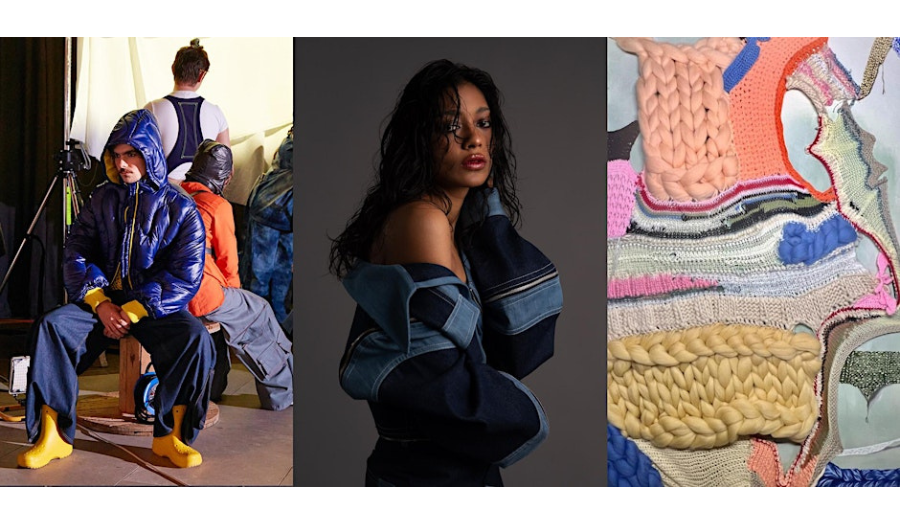


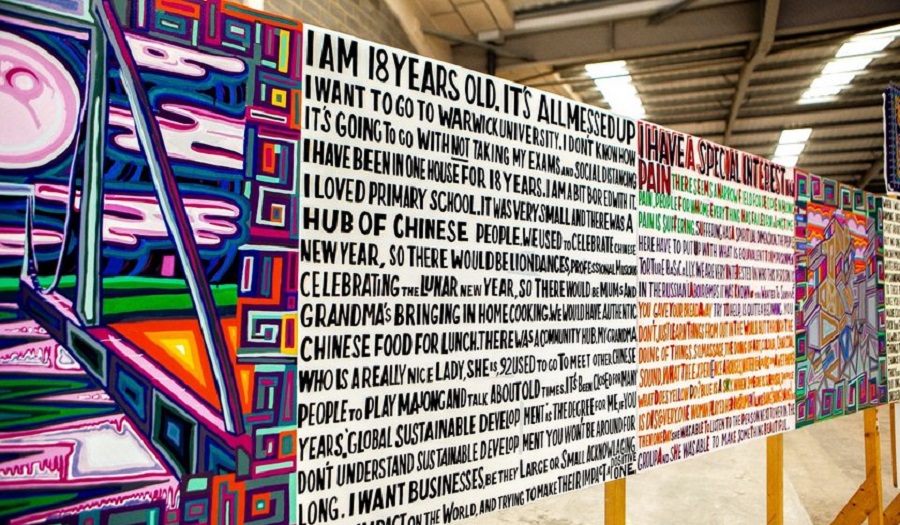

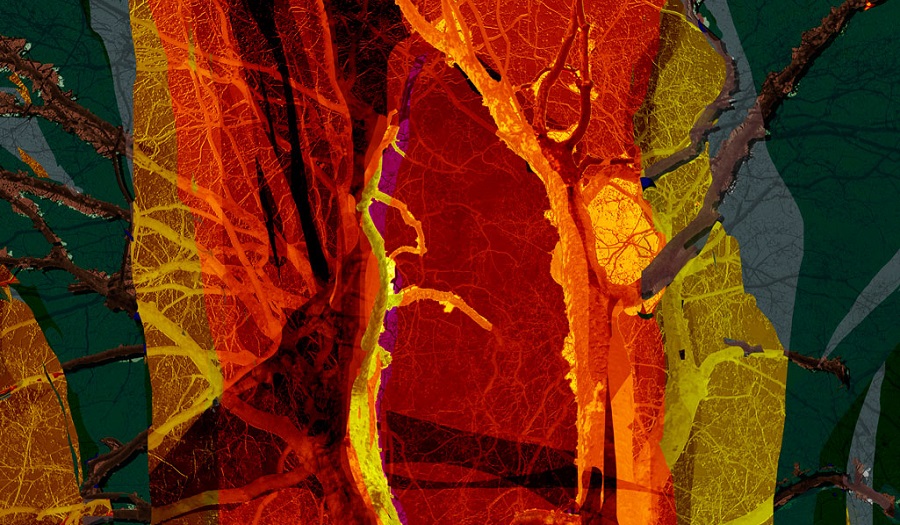
-by-Nye-Thompson-&-UBERMORGEN-image-courtesy-of-the-artists_T4.jpg)
